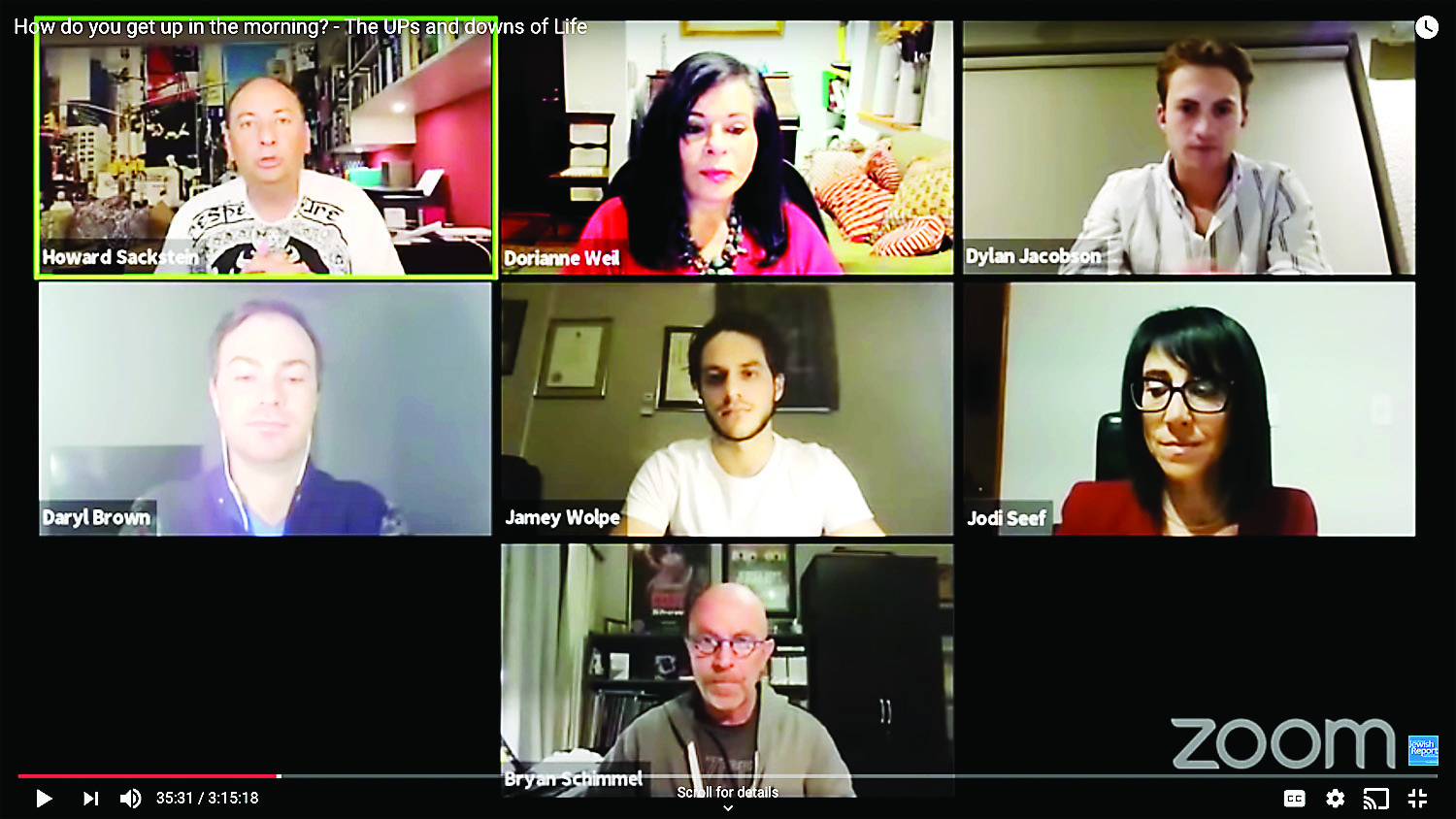
Featured Item

Moving forward from the unimaginable
When 19-year-old Johannesburg medical student Adam Seef took his own life on a trip to Israel in June 2019, it rattled the community to its core. Since then, many have attempted to find their way back from that dark day.
On a recent SA Jewish Report webinar, they shared how they manage to get up in the morning, put one foot in front of the other, and try to make meaning out of the tragedy.
Describing the moments her world changed forever, Adam’s mother, Jodi Seef, recalled how she was on her way to work when her husband called her at 07:15 to say: “something’s happened to Adam, you better come home”. As she approached her front door, she just saw “a sea of Hatzolah” (medical rescue personnel).
“I was whisked upstairs. I’ll never forget it. It was my mother-in-law, my daughter, and my husband, Justin. It was one thing to hear I had lost my child, then I had to hear how he died, and then I had to hear the note.”
In his suicide note, Adam wrote, “I can’t hold on any longer. I have finally reached rock bottom. I feel so alone no matter how many people I am surrounded by and cared for by. Ending my life is no one’s fault but my own. I am so sorry if my death may greatly affect many people, but no one will ever understand what it’s like living with a depression as great as this. People can say what they want, but I seriously cannot bear living another second like this,” before his violent death.
Also on the webinar was Daryl Brown, who lost his legs when he threw himself in front of a London underground train in a failed suicide attempt, and who went on to rebuild his life. Seef thanked him for sharing his path back to hope, and said, “If only Adam had heard your story. There are so many parallels. If only he knew how loved he was. His suicide rocked the community because no one expected it. He had it all. His achievements were off the charts. But it was never enough for him.”
She said that she and her husband had never pressured Adam to do well academically, but as a perfectionist with huge drive and ambition, he pushed himself.
“No one knew the demons he was grappling with. I think his actions were a way to try get away from the unbearable pain. We tried to get him help, and he had so many opportunities to talk to those around him, but in the end he wouldn’t talk to anyone. I think I was a good parent, but of course, one can always do better. Adam was complicated. I had an idea of the breadth of challenges he faced, but not the depth. He was a master at hiding it.
“There are definitely days when I don’t want to get up in the morning, and some days, I don’t. My therapist says this is normal, as long as it’s not every day. I get up because Adam would have wanted me to. He was so proud that I went to university and got a degree. He was proud that I’m a working mom. I’m still trying to make him proud. I also do it for my husband, my daughter, and my sisters, especially my sister who is in the battle of her life with cancer.”
She does three things every day to connect with Adam. First, she exercises. She walks every day, often with her twin sister. “Every time we walk, we find a dandelion. I have a precious photo of Adam blowing a dandelion. These flowers represent emotional healing. So we blow the dandelions, smile, and think of him.
“Second, I have a lit candle that never goes out. It’s next to the most magnificent picture of Adam, and on a tray made for him by a friend. The candle symbolises how his light will never go out in my heart.
“Third, I leave my bathroom light on every night. Adam was often out late, and then would come home and brush his teeth in my bathroom. So he would be the last person to switch off that light. I’m still waiting for my boy to come home, to switch off that light.”
The conversations and initiatives that have emerged from his death also keep her moving forward. “If these can save the life of one person, then he didn’t die in vain,” she said.
Adam’s cousin, Adam Wolpe, spoke about one of these initiatives, Adams Forum. “We felt that the only way to move forward from the tragedy was to channel the emotional pain and build something that may save a life. I grew up with Adam, so it was very scary for me how good he was at hiding the pain he was in and how terribly alone he felt.”
The Adams Forum website provides a space to write anonymously about what you are going through, ask for help, or simply be heard. “We’re not professionals, but we hope to be a beacon of light. We have heard stories of people who have visited the site, and it’s done something for them, given them a spark of hope,” said Wolpe.
Celebrity psychologist Dorianne Weil commented that the five stages of grief are well known, but a few years ago, grief expert David Kessler added a sixth stage: finding meaning. She said that the support offered by Adams Forum contributed to healing, and provided a path and purpose for those struggling with tragedy.
Adam’s friend, Dylan Jacobson, said that the pain “never gets easier”, and that mental health must be taken as seriously as physical health if we are to prevent a similar tragedy.
Also on the webinar was Bryan Schimmel, who went from being an HIV-positive drug addict to South Africa’s most celebrated musical director. He, Brown, and Seef all spoke of how pride stops people from getting help or making the right choice. After years of self-destruction in New York, Schimmel knew he would die if he didn’t return home, but at first, his pride stopped him. When he eventually came back to South Africa, he managed to build his extraordinary career, something that may never have happened had he tried to soldier on alone.
All three also spoke of the role that institutions, leaders, and communities must play in making all people feel accepted. Schimmel and Brown spoke of how society’s judgement of their sexuality was a key factor in their feelings of worthlessness, and Adam wrote of the same feelings in his suicide note.
Said Seef, “I’ve spoken to many families, and I’ve found that many young people are grappling with the same feelings that Adam went through. They need to know that it’s okay not to be okay, but get help before it’s too late. It could have saved my son’s beautiful life.”










